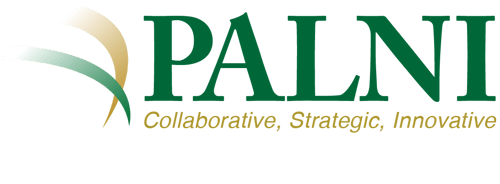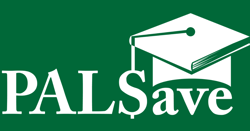Glossary
Academic Freedom
- Faculty’s ability to explore and select learning resources for their academic topic in their classroom without undue restrictions.
Adapt
- To take an existing work and make it more suitable to a user’s specific purpose. Open educational resources can be adapted because of the way they are licensed
Admin Team
- A team set up to plan, administer, and evaluate projects or programs across PALNI. In this case, the PALSave Admin Team centrally administers PALNI Affordable Learning for the consortium
Adopt
- To choose and implement an educational resource (textbook or other) for use in a course
Adoption Rate
- The percentage of faculty who adopt an open text after attending a workshop and writing a review: 45%
Affordable Education Initiatives Task Force
- The PALNI group that first completed a landscape scan of consortial affordable learning programs and recommended the multi-component PALSave plan
Affordable Learning
- A program consisting of products, services, and methods that help mitigate the rising costs of higher education, often focusing on open educational resources and library-licensed content
Articulate
- An instructional design tool to support e-learning
Awareness/Education/Engagement
- The progressive stages recommended by the Open Education Network for an Open Educational Resource (OER) program
- Awareness: Having heard of, but not having substantive knowledge of OER. This can be achieved through passive communication methods, such as email.
- Education: Learning about the benefits of OER so that informed decisions can be made. This can be achieved through active communication methods, such as a face-to-face workshop
- Engagement: Beginning to interact with OER. This can be achieved through evaluation, review, and selection of resources in the Open Textbook Library.
Campus Leaders
- Individuals on campus with an active interest in rolling out PALSave locally and promoting affordable learning efforts at their institution. Examples include: administrators, bookstore managers, faculty, instructional designers, and librarians
Campus Partners
- Departments and entities on campus with a vested interest in student success, which should be consulted and engaged for PALSave’s local implementation. Examples include: Bookstores, Centers for Teaching and Learning, Student Government, Faculty Senate, Marketing
CC-BY (Creative Commons Attribution License)
- A license that allows any use or reuse of a work as long as the creator is attributed
Community of Practice (CoP)
- Members of a professional community who are informally bound by what they do and what they learn through their engagement in activities together. The Open Education Network provides one example of a community of open education practitioners working together. Another is the relationships PALNI is fostering with instructional designers across the consortium
Consortial Peer Model
- Several library consortia such as LOUIS and OhioLINK have established successful affordable learning programs, and serve as models for the PALSave program
Content Production
- The creation of open-access texts that can be shared out with the greater community so that more users can benefit
Course Redesign/Transformation/Conversion
- The process by which faculty plan their course using new learning materials such as open textbooks. This process is supported by the PALSave Admin Team and local instructional design experts
Creative Commons (CC)
- Creative Commons provides a licensing schema that allows creators to define how their works may be used without users having to seek permission. Examples include: CC-BY and CC-BY-SA
Derivative Work
- A work created using a prior work as its base, such as an adaptation of an open textbook
Drop/Fail/Withdraw (DFW)
- Each class on a campus tracks the rate at which students drop, fail, or withdraw from a class. A high DFW rate for a class can indicate an ongoing problem and contributes to poor retention
eTextbook
- Electronic version of a traditional print textbook, often made available through an inclusive access model
Expertise Development
- Attendance by the Admin Team to major affordable learning meetings and conferences, such as OpenEd and the Open Education Network Summer Institute + Summit. This also includes meeting with other groups, consortia, and project teams focusing on affordable learning
Faculty Workshop
- A workshop delivered by the PALSave Admin Team designed to educate faculty about affordable learning, particularly the Open Textbook Library, and increase their knowledge about the students’ financial predicament, publishing models, Creative Commons licensing, and sources for open educational resources
Five Rs (Retain, Reuse, Revise, Remix, and Redistribute)
- The hallmarks of a completely open educational resource. You can keep, use, edit, combine, and share resources open to the 5 Rs.
Hands-on Support
- Consultation with faculty and active participation in the process to locate affordable learning resources and integrate them in courses. Closely related to course redesign
Inclusive Access
- Access to eTextbooks obtained through a licensing contract with a commercial publisher. This contract allows for first day access to course material at a discounted price, billed to the student as part of their course fees
Instructional Design
- The process of implementing educational materials and tools in course development in order to optimize learning outcomes; often carried out by an instructional designer
Instructional Technology
- Software, hardware, and tech tools used in an instructional setting; closely related to instructional design in its relation to the technology side of developing courses
LibreTexts
- A web-based platform offering libraries of subject-based open educational resources, focused on ease of use for creating, customizing, and dissemination of open content. Recipient of the $5 million grant from the Department of Education, in collaboration with two PALNI-supported institutions
Library Licensed Content
- Digital materials such as ebooks, databases, and streaming media which are free to students and potentially suitable for use in the classroom
License
- A method by which a copyright holder grants permission to use their copyrighted work. A license only permits usage of the material as outlined in the license language, and the copyright holder retains their copyright
Local
- In the PALSave context, “local” refers to the campus level. For example, interviews and surveys are a good way to establish local needs and interest in affordable learning.
Learning Tools Interoperability (LTI)
- A standard for allowing course materials and tools to be delivered to students via their institution’s learning management system
Learning Management System (LMS)
- A software application for the administration of educational courses and delivery of digital course materials
Open Educational Resources (OER)
- Course materials such as open textbooks, which are free to use. They are generally published under a Creative Commons license which indicates acceptable uses such as editing, combining with other OER, and sharing
OER Commons
- A repository of open educational resources and other freely available instructional materials
OER Editing Platform
- A tool used for creating, adapting, and mixing existing open educational resources such as open textbooks, often in conjunction with repositories. Examples include: OER Commons and Pressbooks
OER Repository
- A collection of open educational resources indexed, delivered, housed, and maintained in the same system, such as OER Commons
OER Referatory
- A site or system that indexes and points to OER on the web, such as the Open Textbook Library
Open Textbook Library (OTL)
- A referatory of open textbooks curated by the Open Education Network
Open Education Network (OEN)
- A group of higher education institutions working together to promote and propagate the use of open textbooks. OEN maintains the Open Textbook Library.
PALSave (PALNI Affordable Learning)
- PALNI’s overall program created to promote and support awareness, education, and engagement with open and affordable educational materials across its 24 supported campuses
Pressbooks
- A platform for editing and designing books in a publishable format
Primary Contact
- The person on each campus who will bridge communication between the institution and the PALSave Admin Team
Review
- In this context, the process by which faculty evaluate and publish their assessment of an open educational resource. PALSave incentivizes reviews in the Open Textbook Library with a $200 stipend.
SPARC (Scholarly Publishing and Academic Resources Coalition)
- A global coalition that works with a variety of stakeholders to enable the open sharing of educational materials to democratize access to knowledge
Stipend
- Monetary incentive for faculty to participate in projects that add to an already heavy workload. PALSave incentivizes reviews, adoptions, adaptations, and creation of open textbooks
Student Retention
- Students’ continued attendance at an institution from semester to semester until completion of their degree; closely related to student success
Student Success
- Evidence that students are achieving and thriving in college, such as good grades, retention, and academic advancement
Support Agencies
- In this context, membership groups that provide resources and foster communities of practice in open education, such as SPARC and Open Education Network
Talking Points
- Statements that succinctly demonstrate the need for local affordable learning programs; a method for encouraging campus partner buy-in. PALSave has prepared talking points as a resource for PALNI’s supported institutions

